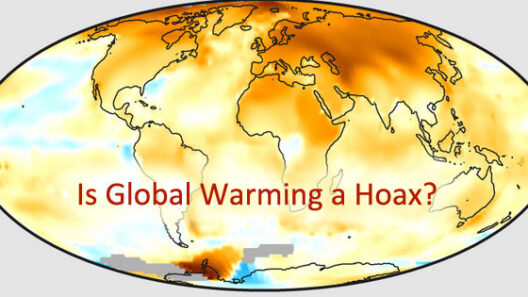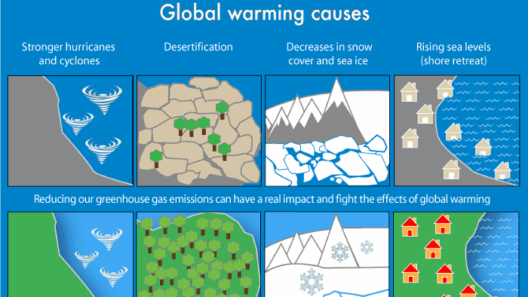Global Warming: A Call to Action
The imminent threat posed by global warming extends beyond mere environmental concerns; it infiltrates our daily lives and economies, urging us to rethink our habits. As we navigate the complexities of modern living, developing strategies to mitigate this crisis becomes paramount. Surprisingly, small adjustments in our lifestyle can yield significant results, demonstrating that collective action is within reach.
In this exploration, we delve into practical tips that can reduce our carbon footprint and collectively combat global warming. Moreover, we shift perspectives from despair to empowerment, unveiling the potential of individual actions in the face of monumental challenges.
Rethinking Transportation: A Journey Towards Sustainability
Transport accounts for a substantial segment of carbon emissions globally. The choices we make about how we travel can dramatically influence our carbon footprint. Transitioning from conventional vehicles to eco-friendlier alternatives is a robust first step.
Consider the myriad benefits of public transportation. By utilizing buses, trains, or subways, you reduce the number of individual cars on the road, thereby decreasing emissions. Carpooling is another viable option, promoting a sense of community while also conserving fuel. As you embark on your daily commutes, explore biking or walking; these methods not only evoke a sense of liberation but also foster a decreased reliance on fossil fuels.
E-bikes and electric scooters have emerged as innovative solutions, too. They merge the excitement of a traditional bike with the convenience of electric power, enhancing urban mobility without the carbon footprint. If personal vehicles are necessary, consider transitioning to electric or hybrid models, which demonstrate considerable energy efficiency and reduced emissions compared to their gasoline counterparts.
Energy Efficiency: Powering Change at Home
The journey towards combating global warming is incomplete without addressing energy consumption at home. Residential energy usage is a leading contributor to greenhouse gas emissions. Consequently, making your home a bastion of energy efficiency can lead to meaningful reductions in your carbon output.
One of the most effective methods is upgrading to energy-efficient appliances. These devices, often rated with ENERGY STAR labels, consume less electricity, which directly impacts your utility bills and the planet. Additionally, consider implementing smart home technologies that allow you to monitor and efficiently manage your energy consumption, turning off devices remotely when not in use.
Insulating your home can be a game changer. Proper insulation not only maintains a comfortable indoor climate but also reduces the energy required for heating and cooling. Harnessing renewable energy sources, particularly solar panels, can transform your home into a net-zero energy powerhouse, significantly diminishing reliance on fossil fuels.
Finally, making a conscious switch to renewable energy sources supplied by your electrical utility can yield substantial benefits. By choosing wind, solar, or hydroelectric options, you align your energy consumption with environmentally friendly practices.
The Meat of the Matter: Rethinking Our Diet
Food production stands as a critical player in our battle against global warming. The livestock industry, in particular, contributes significantly to greenhouse gas emissions. A fundamental change in our diets can therefore be a powerful tool for sustainability.
Embrace a plant-based diet as much as possible. By reducing meat and dairy consumption, particularly from resource-intensive industries, you not only limit your carbon footprint but also promote biodiversity through varied agricultural practices. Even incorporating ‘Meatless Mondays’ into your week can lead to substantial reductions in carbon emissions.
Additionally, consider sourcing food locally. Eating seasonal produce not only supports local economies but also minimizes the transportation emissions associated with long-distance food distribution. Organic farming practices often promote healthier soil and biodiversity while sequestering carbon dioxide, making them an attractive alternative for conscientious eaters.
Another innovative approach is to grow your own vegetables. Whether through backyard gardens or community plots, engaging in local agriculture fosters a profound connection to food cycles and offers tangible benefits to the environment.
Small Changes, Monumental Impact: The Ripple Effect
Each small change contributes to a larger movement towards sustainability. When individuals adopt sustainable practices, it inspires a wave of change that can ripple through communities and beyond. Engaging in conversations about climate change within your sphere of influence empowers others and fosters a culture of awareness and responsibility.
Participating in local conservation efforts or sustainability campaigns can amplify your impact. Whether it’s volunteering for tree planting initiatives or joining local environmental organizations, collective efforts can challenge larger systemic issues that contribute to global warming. Encourage your workplace to adopt sustainable practices, such as waste reduction and efficient commuting solutions, thereby fostering a broader culture of environmental stewardship.
Advocacy matters. Your voice in local and national policies aimed at combatting climate change can help steer legislative agendas toward sustainability. By opting for eco-conscious products, you support companies that prioritize ethical practices and the well-being of the planet over short-term profit.
In Conclusion: A Unified Stance Against Global Warming
Tackling global warming requires a multifaceted approach. By rethinking our transportation, enhancing our home energy efficiency, and shifting our dietary choices, we collectively shape a sustainable future. The path to combating climate change is fraught with challenges; however, the power to effect change lies within each of us. Embrace these practical tips and become a proactive participant in the preservation of our planet.
Every action counts. The promise of a healthier planet awaits. The question is, are you ready to join the movement?







